Suchergebnisse
IEA Bioenergy Task 39 Newsletter #33 (April 2013): South Afrika
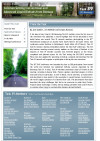
Diese Ausgabe des Newsletters beinhaltet neben Neuigkeiten aus der Task, interessanten Berichten, Veranstaltungen und News, einen Schwerpunktsartikel über die Entwicklungen im Biotreibstoffbereich in Südafrika.
Englisch, 16 Seiten
Downloads zur Publikation
Innovations for the city of tomorrow
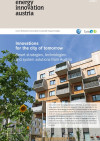
Smart strategies, technologies and system solutions from Austria
energy innovation austria
4/2016
Herausgeber: BMVIT und Klima- und Energiefonds
Englisch, 16 Seiten
Downloads zur Publikation
9th High Temperature Solid Looping Cycles Network Meeting
14. - 15. March 2023
Palazzo Farnese, Piacenza, IT
The network meeting on high-temperature solid looping cycles focuses on technological developments in "solid looping" processes, in which a solid material circulates in multiple reactors at elevated temperatures. The aim of this meeting is to showcase the latest advances in solid looping cycles.
IEA HPT Annex 56 - IoT for Heat Pumps Final Results
18. October 2023, 9:30 am
online, AT
During this event you will have the opportunity to gain insights into the outcomes of the IEA HPT Annex 56, focusing on IoT (Internet of Things) and Digitalization for Heat Pumps.
IEA AMF Task 66 Online Seminar Series "Recent progress in SAF research" - Seminar #2/10
20. May 2025, 03:30 - 05:30 PM CET
Online, AT
This free online seminar will highlight recent research on the identification of process parameters and desirable end-use properties of Sustainable Aviation Fuels (SAF). The seminar is moderated by Doris Matschegg and Dina Bacovsky (BEST).
Workshop: IEA Bioenergy Task 44 - Flexible Bioenergy and System Integration
24. January 2020
Messe Congress Graz - Conference Center, Graz, AT
This workshop shows relevant links to other technological tasks within IEA Bioenergy.
openVALUE - Quality and Weight of Open Spaces of Urban Building Projects
Based on four case studies the comprehensive contribution of open space to the increase of quality in real estate development was presented and provides the basis for the development of application oriented measures of quality management and strategies for innovative solutions.
Development of test methods for non-wood small-scale combustion plants
Driving forces and barriers as well as information on regulations of the authorities for the use of non wood fuels for small-scale boilers.
e80^3-Buildings - Sub project 3: Development of technology and components
The main objective of the key project "e80^3" was to develop high-performance renovation concepts focusing on plus-energy-buildings. Afterwards these concepts were realized in at least one or two demonstration-projects.
OptoControl - Modern sensor systems for energy conservation in buildings
The necessary efficiency of modern energy-self-sufficient buildings can only be achieved with intelligent control of the key parameters. The main focus of the project is the adaptation of optical sensor concepts for application in building technology. The future goal of the project is to supply the modern energy-plus-house with an appropriate and intelligent control device to minimize energy loss.
Integration of renewable energy sources for district heating in cities
Portfolio of technologies and action plan for the integration of renewable energy sources for district heating in cities and for enhancing the total efficiency of the supply chain from energy input to energy service.
Workshop: Will a smarter grid lead to smarter end users - or vice versa
3. - 4. June 2015
Oslo, NO
The workshop will focus on the potential benefits of smart grids for end-users and society at large, with the goal of identifying novel approaches and critical aspects for realising this potential as well as core R&D needs on this topic and similar areas that need attention.
Conference: 21st International Conference on Fluidized Bed Combustion
3rd - 6th June 2012
Naples, AT
Latest issues in fundamental research, equipment design and application experience.
Multifunctional Energy Centres - The Biogas Example
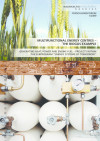
Generating heat, power and engine fuel - projects within the subprogram "Energy systems of tomorrow"
1/2009
Herausgeber: BMVIT
Englisch, 6 Seiten
Downloads zur Publikation
Fluidized Bed Conversion Of Biomass And Biomass Waste In Austria (2015)
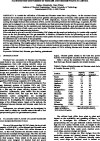
Die Arbeit und das Poster geben einen Überblick über die Wirbelschichtanlagen in Österreich, die Biomasse als Brennstoff verwenden. Dabei wird auf die eingesetzten Brennstoffe und deren Auswirkungen auf die Rauchgasreinigung und die Brennstoffaufbereitung eingegangen.
M. Bösendorfer, F. Winter
Herausgeber: Institute of Chemical Engineering, Vienna University of Technology
Englisch, 5 Seiten
Downloads zur Publikation
Intelligent Energy Systems of Tomorrow - Smart Grid Pioneers in Austria
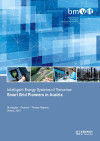
Strategies - Projects - Pioneer Regions
Herausgeber: BMVIT
Englisch, 44 Seiten
Downloads zur Publikation
Feeding Biogas Into The Austrian Natural Gas Grid
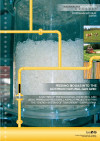
2/2006
Herausgeber: BMVIT
Englisch, 6 Seiten
Downloads zur Publikation
Thermal expansion behavior of solar cell encapsulation materials (2015)

Knausz, M., Oreski, G., Schmidt, M., Guttmann, P., et al.
Herausgeber: Elsevier
Englisch, 8 Seiten
Research work on outside sprayed-on cellulose insulation covered with plastering

This research work was done to expand knowledge about outside sprayed-on cellulose insulation application focusing on mechanical and physical properties respectively.
Innovative Energietechnologien in Österreich - Marktentwicklung 2013
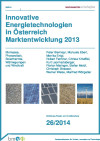
Biomasse, Photovoltaik, Solarthermie, Wärmepumpen und Windkraft
Schriftenreihe
26/2014
Peter Biermayr, Manuela Eberl, Monika Enigl, et al.
Herausgeber: BMVIT
